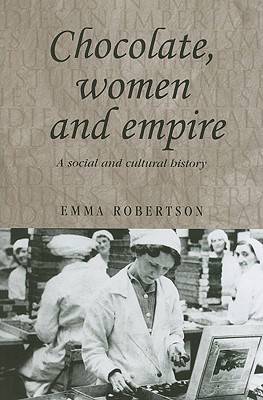
- Retrait gratuit dans votre magasin Club
- 7.000.000 titres dans notre catalogue
- Payer en toute sécurité
- Toujours un magasin près de chez vous
- Retrait gratuit dans votre magasin Club
- 7.000.0000 titres dans notre catalogue
- Payer en toute sécurité
- Toujours un magasin près de chez vous
90,95 €
+ 181 points
Format
Description
From Roald Dahl's Charlie and the Chocolate Factory to Joanne Harris' Chocolat, from romantic gift to guilty indulgence, chocolate has a special place in Western popular culture. But what are the hidden histories behind this luxurious commodity? This book examines chocolate production from cocoa bean to chocolate box, illuminating the dynamics of gender, race and empire which have structured the cocoa chain. Using a varied range of sources, including oral histories, advertising material and archival documents, and drawing on the author's own relationship to the industry, this book reconnects the people and places at different stages of chocolate production from the nineteenth to the twenty-first century. Opening with a critique of familiar images of chocolate presented in adverts for products from Kit Kat to Black Magic, Emma Robertson stresses the need to recognise the complex histories of empire and labour which have made such pleasurable consumption possible. At the heart of the story are the lives of women workers at two key sites: the cocoa farms of Nigeria and the confectionery factories of Britain. Focusing particularly on the operations of the York-based Rowntree firm, the author suggests how chocolate production brought the empire home to a small northern city. Chocolate, women and empire offers exciting new insights into the lives of women workers in a global industry and a new perspective on the relationships between Britain and West Africa. It will be invaluable to historians of British imperialism as well as to students of Women's and Gender Studies, Cultural Studies and Business Studies.
Spécifications
Parties prenantes
- Auteur(s) :
- Editeur:
Contenu
- Nombre de pages :
- 249
- Langue:
- Anglais
- Collection :
Caractéristiques
- EAN:
- 9780719077777
- Date de parution :
- 27-01-10
- Format:
- Livre relié
- Format numérique:
- Genaaid
- Dimensions :
- 155 mm x 234 mm
- Poids :
- 544 g

Les avis
Nous publions uniquement les avis qui respectent les conditions requises. Consultez nos conditions pour les avis.






